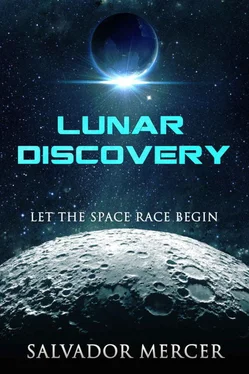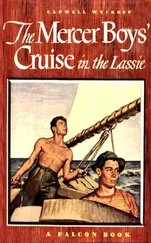“Thank you, Director Lui.” Mrs. Brown resumed her role as the group facilitator rather quickly. “For Mr. Wheeler, Mr. Alders, and Mrs. Monroe, I’d like to add that the team liaison, Mr. Smith, is not available at the moment but is the representative of the executive branch at this time. Any requests for resources, materials, financing, or other related questions can be addressed through either one of us. Are there any questions?” No one spoke.
“All right, then, you’ve all heard the news as well as what some of the world’s foreign powers are implementing. I understand you have the workings of a base plan?” Mrs. Brown asked.
All eyes turned to Rock. Director Lui may be his boss, but he was thoroughly entrenched in the day-to-day politics, being more an administrator than a scientist, so it was natural that everyone looked to him for their leadership.
Rock stood up since the president was attending. “Everyone. We’ve had enough time to brainstorm a bit, and with Jeff’s help, we’ve come up with a rough idea on how to get to the moon in the shortest and safest”—with this, Rock looked over at Julie and Craig, giving them a nod—“amount of time necessary.
“The main issue is lift capability. We’ve let our space exploration program languish, and we found ourselves buying rides on board the Russian rockets in order to meet our orbital needs. Everyone knows the international space station has all but been decommissioned and only the Euro Union and the Jap-Kor alliance are keeping it operational. The last few years’ attempt at détente with the Russians after the Ukraine War had us financing their newest station while we participated in manning it and conducting our scientific programs.
Well, I’m no politician, but the recent eviction we received last week has pretty much ended that line of cooperation between our two governments. I won’t get into the ambassadorial parts of it, but our most urgent need is lift capability.” Most eyes had moved to the president as Rock discussed the political aspects of what had been happening, but when there was no discernable change in the president’s affect, everyone returned their gazes to Rock.
“Currently we contract out with Space Corp for smaller satellite lifts of less than fifty tons into low earth orbit.” Rock used the actual term instead of the acronym as he knew for sure Mrs. Brown would interrupt him, asking him to clarify if he didn’t. “The Sparrow rockets were designed for just this. What we need is our heavy lift capability again, and it would take months, if not years, to design, build, test, and commission a new class of rocket capable of reaching lunar orbit, with a sufficient payload to accomplish our mission.”
“Again?” President Powers asked, managing to gather the attention of everyone in the room.
“Yes, Madam President. I’m referring to re-commissioning the Saturn V from storage and building new ones based on their schematics for service,” Rock said, sitting down.
The president’s National Security Advisor, David Rose, said something to the president and then asked, “You’re talking about technology that is well over half a century old. Isn’t there something newer we could discuss?”
“Yeah, what kind of ride are you trying to give us, Rock?” Craig said, a smile across his face demonstrating support for his idea.
“Sir,” Rock began, addressing the director, “the Saturn V s were the only rockets ever produced that could even reach trans-lunar orbit. We have never had funding for more than that. I think the Apollo program at its peak took nearly a half percent of our GDP to fund it.”
“But we’ve sent landers to Mars and spaceships to Jupiter, Saturn, and even Pluto,” Director Rose complained. “How is it that we can’t send a man to the moon without using antiquated equipment?”
The room was fairly silent, and while Rock liked his boss, he saw there would be no help from that quarter. “The rovers on mars, the probes into Jupiter, and even the flybys that we conducted on Neptune and Pluto consisted of very small payloads using much lighter rockets. We’re talking about a half ton at the most, and for many of the missions much less—only a few hundred pounds at most.”
“The bulk of the Saturn V ’s weight at launch was propellant,” Lui added. “The actual payload was considerably smaller than the rocket’s launch weight.”
“Can’t we just strap or tie several smaller rockets together in order to achieve a better payload?” Director Rose asked.
Tom jumped in. “It’s possible but highly unlikely that we could contain either the thrust vectoring of the various rockets or prevent the oscillation from the differential between thrust burns.”
“He’s referring to the flutter when the rockets fire,” Jeff added.
“I don’t think they’re familiar with that term either, Jeff,” Marge added. “Flutter”—she continued addressing the president and director—“is what happens aerodynamically and is a dynamic instability of an elastic structure in a fluid flow caused by positive feedback between the body’s deflection and the force exerted by the dynamic aero-flow, eventually leading to self-oscillation from simple harmonic motion and results eventually in structural failure.”
“And I thought I was the mechanical engineer in the room,” Tom said, shaking his head.
Before anyone could speak, Rock jumped in, hoping to keep Mrs. Brown at bay. “What my team is trying to say, Director Rose, is that we run the risk of the rocket destroying itself by vibrating excessively once it reaches a critical speed. It takes a coordinated effort in design as well as the trial and error process to prevent this from happening. It will take considerable time to engineer this into a workable solution.”
There was a considerable amount of hushed discussion at the president’s end of the table as several of her staff leaned in closely and it appeared to be more than argumentative from what little Rock heard.
“Absolutely not,” Director Rose said, his voice rising.
There were strained looks from the President’s aides as the discussion grew heated. Rock felt discarded and had enough of the executive team’s antics, “What is the problem, Madam President?”
Everyone stopped talking when Powers raised her hand and leaned back in her chair, taking her time in answering Rock’s question. “There seems to be some concern about your proposal in using the Saturn rocket’s for a lunar journey.”
“How so?” Rock asked, rather bluntly considering with whom he was speaking.
“They don’t have the proper SCI clearances for this,” Director Rose stated, also leaning back in his chair and folding his arms across his chest.
Rock knew that SCI stood for “Sensitive Compartmented Information” and was a highly secret and rare clearance to have. Mrs. Brown looked lost for a change and it gave Rock at least a modicum of satisfaction to see his handler confused for a change.
“If we give it up then you’ll have no counter,” the general said to President Powers.
“Give what up?” Rock asked, frustration mounting.
There was a long pause as Powers considered her next words carefully. “We already have an operational Saturn rocket.”
Rock looked to Mrs. Brown who actually stood with her mouth open, speechless for a change. The other members of his team looked at each other than back to the president. No one spoke.
“Did you hear me, Mr. Crandon?” Powers asked.
Before he could answer Director Rose interrupted, “They don’t have the proper—”
Powers held her hand up, silencing him in mid-sentence. “As of now, everyone in this room is cleared for Operation Atomic Hammer.”
Rose sighed and Tom opened his trap yet again in an untimely manner, “Atomic hammer my ass.”
Читать дальше












